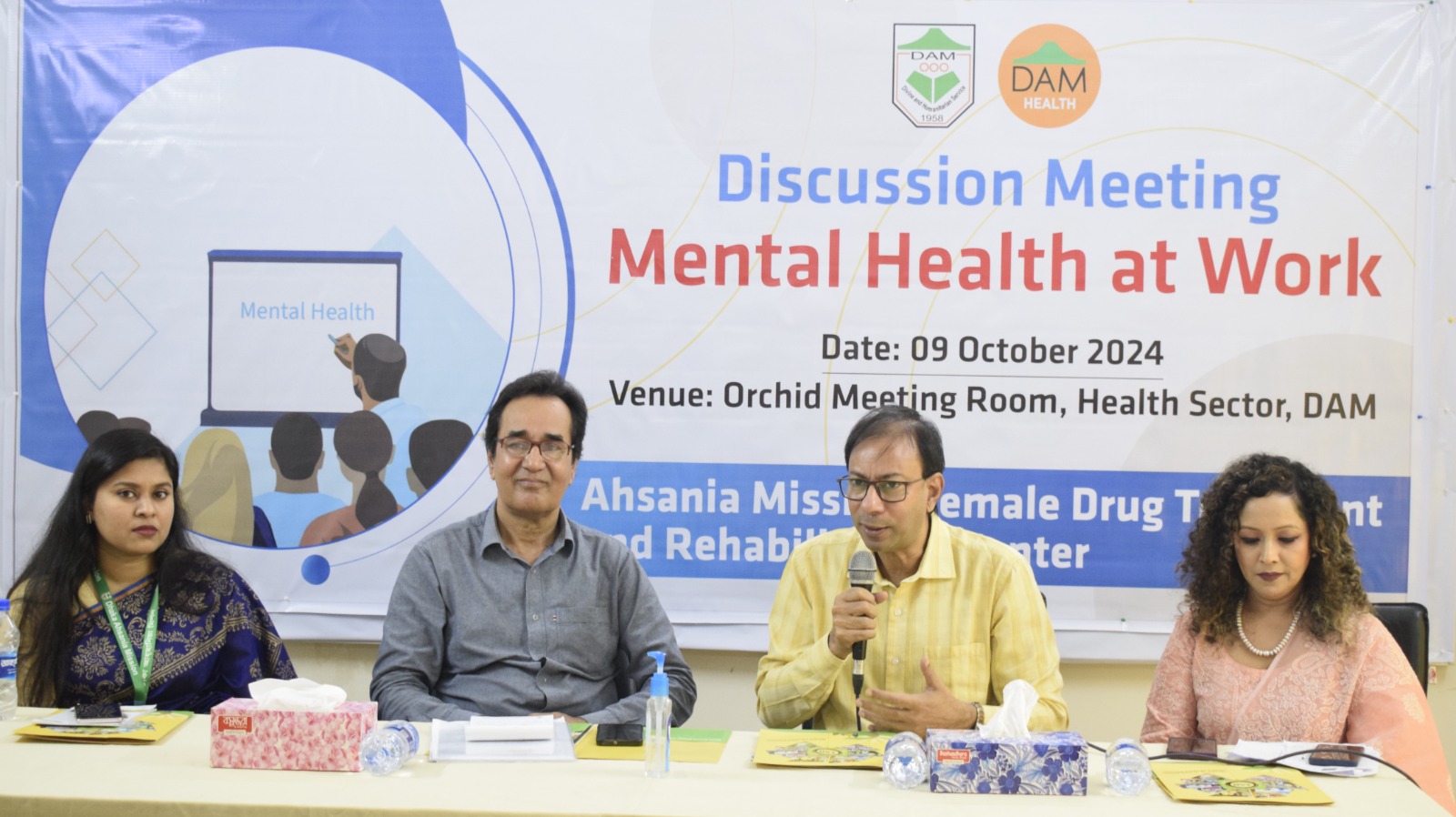

It is necessary to ensure mental health care for those serving at-risk populations. Along with promoting safe work environments, mental health support must also be prioritized. According to World Health organisation (WHO) currently, over 30 million people in the country need mental health services.
The speakers said this in a discussion meeting on the occasion of celebrating the World Mental Health Day organized by the Ahsania Mission Female Drug Treatment and Rehabilitation Center, at the meeting room of the Health Sector, Dhaka Ahsania Mission in the capital's Shyamoli, Dhaka, on Wednesday, October 9, at 11 am. The theme for this year is “Mental health at work: it’s time to prioritize.” Speakers at the event included Dr. Shamsuddin Ilias, Secretary General of the Bangladesh Psychological Society (BPA), as well as Fatima Tasreen Mitu and Mahmuda Alam, counselors from the Ahsania Mission Female Drug Treatment and Rehabilitation Center. The session was moderated by Rakhi Ganguly, Senior Psychologist at the Dhaka Ahsania Mission Health Sector.
The meeting was presided over by Iqbal Masud, director of the health and WASH sector of the DAM.
The speakers mentioned the importance for the strong link between workplace conditions and mental health. A supportive work environment with clear purpose and persistence can enhance productivity. However, factors like employee discrimination, poor working conditions, or limited autonomy can pose risks to mental health. Depression and anxiety alone lead to the loss of about 12 billion workdays annually according to WHO. Therefore, managers should be trained to recognize and manage workplace stress. Creating a healthy work environment through open dialogs on mental health, ensuring adequate breaks, completing tasks within office hours, organizing mental health workshops, and implementing support programs can make a significant difference.
The speakers also pointed out that professionals working in drug treatment centers, rehabilitation facilities, and mental health care settings face higher mental health risks. This makes it even more important to address mental health in these workplaces. Ensuring good mental health practices at work will not only improve well-being but also enhance job performance.
It is worth noting that a 2018-19 survey by the National Institute of Mental Health reported that 17% of adults suffer from mild to severe mental health problems (19% of women and 15% of men), while 13.6% of the population under 18 is affected. Additionally, the country has fewer than 1,000 mental health professionals, resulting in a treatment gap of over 90% across all age groups.
